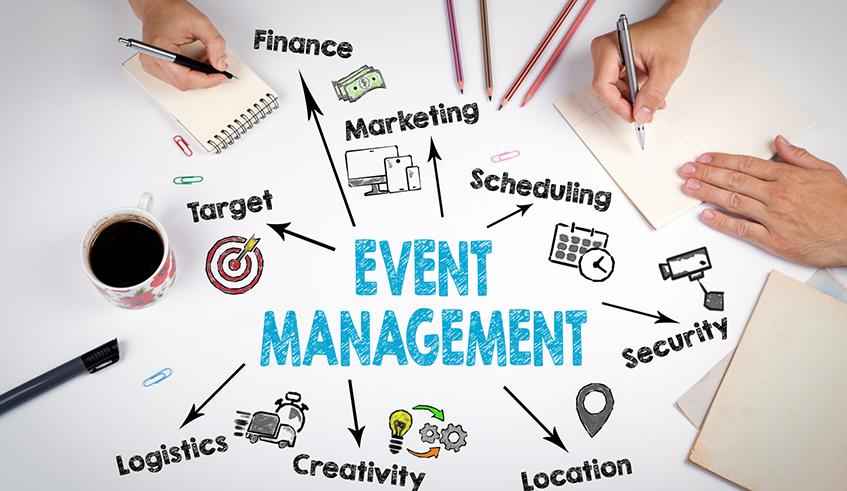Africa-Press – South-Sudan. Any event management professional will tell you that this particular occupation can be demanding and stressful, but on the other hand, full of creativity, variety and exciting opportunities. Experts in the field say that before one embarks on this journey, understand that it is a passion-driven career.
There are hardly any jobs that offer you the same scope of creativity, socialising and travel than a career in event management, however, according to research, it featured as one of the five most stressful jobs in the world.
Remmygious Lubega, CEO of RG-Consult Inc, a production, experiential marketing, events management and consulting company, says as much as any study or academic discipline can aspire to be an events guru, one has to make some tough decisions and be ready to make sacrifices in order to thrive.
“When it comes to the event profession, one needs to put into consideration planning, preparation, creative thinking, and dynamism, among other things. Also, you have to able to work for more hours, or late,” Lubega says.
“The most important aspect is that one should be able to manage stress well and deal with the challenges that come with uncertainty at any event or occasion,” he adds.
Abdul Ngabitsinze Wahabi, the founder of Rwanda Modesty Fashion Show, believes that event management should have a team and leader, with a vision and mission.
This, he says, also includes having financial sources, human resources, property like backdrops, banners, red carpets, among others. Lubega agrees, saying creating a network of human resources, talents, vendors, and suppliers that are reliable and up to one’s standard is crucial.
Wahabi points out that when it comes to event management, it’s important to know what one’s client likes, to be able to create something unique. “Be in the position to evaluate and measure improvement. Get to know your team, and attend similar events to learn more,” Wahabi says.
Marie Ange Mukaneza, a career life coach with Women in News, believes that when it comes to event management, it’s ideal to, first of all, have passion for it.
This, she believes, will make room for others to like, and most importantly, appreciate your work, which is motivating. She says it’s also essential to be versatile, as there are many services to offer.
“The industry is so varied that you can find yourself organising a wedding in the countryside one day, to organising a competition the next,” it says in the article “How to Start your Career in Event Management”.
Event manager Louisa Douglas, quoted in the article, says: “I love the rush, no two days or events are the same, it’s an agile industry that’s always changing, plus I get to meet new people all the time.”
“Working closely with clients to plan and deliver a successful event is extremely rewarding and the industry offers fantastic career progression,” the article states.
Wahabi says it is also good to create a good relationship with hosts, and of course, be consistent in what you do and provide to your clients. Lubega believes that a true event organiser will find happiness in a well-executed job, even with challenges along the way.
Challenges
It is said that there is no minimum qualification required to become an event manager. Anyone with strong organisational skills, creativity, and excellent PR skills can enter the industry. However, if you decide to do so, keep in mind that it comes with its own set of challenges, just like most things in life.
Lubega says the growing economy doesn’t acknowledge ‘consultancy fees’ where one is required to think through an event, and that, to him, is a full-time job.
Also, he says, it’s costly to have everything you may need for all your clients; capital intensity (amount of fixed or real capital present in relation to other factors of production) hinders self-reliance.
“If you can pull in capital for outsourcing, you will be paid much later by the client, so you need to be able to manage your cash flow to be able to service contracts and workforce,” Lubega adds. In addition, he says, building a team that can fly to the level you envisage is quite time-consuming, and resource-draining.
Pricing
Wahabi says first and foremost, one should have a goal. He explains that you need to first give yourself value and know what price to fix, based on what you are giving a client.
“To attract customers, one should think of starting with a fair price because clients always expect good quality for a low price,” he says.
“As you increase from starting price, some may pull away, but if the quality of service you give is top-notch, clients will eventually come to respect your pricing.
Lubega says pricing is flexible and there is no standard for that, but because it’s more of a consultancy career—where people approach you to first conceptualise then sell the idea for an event—one can try and have a consultancy fee, or event management fee or concept development fee.
“This can be a flat rate or a percentage of what event budget you are managing because event budget means tasks on your hand, and managing those elements comes with a fee,” he says.






